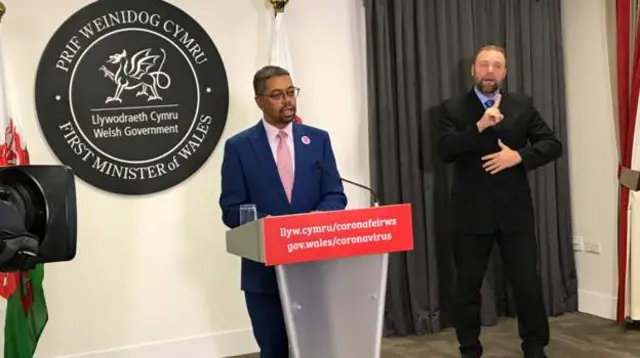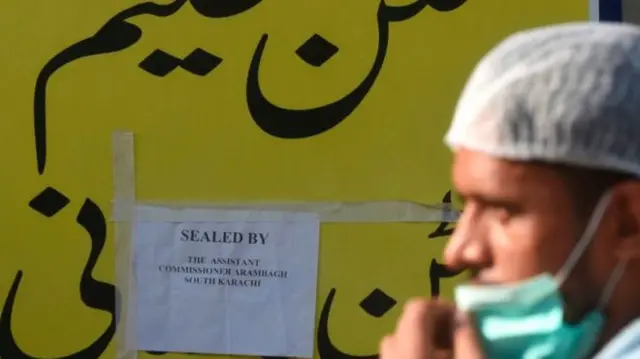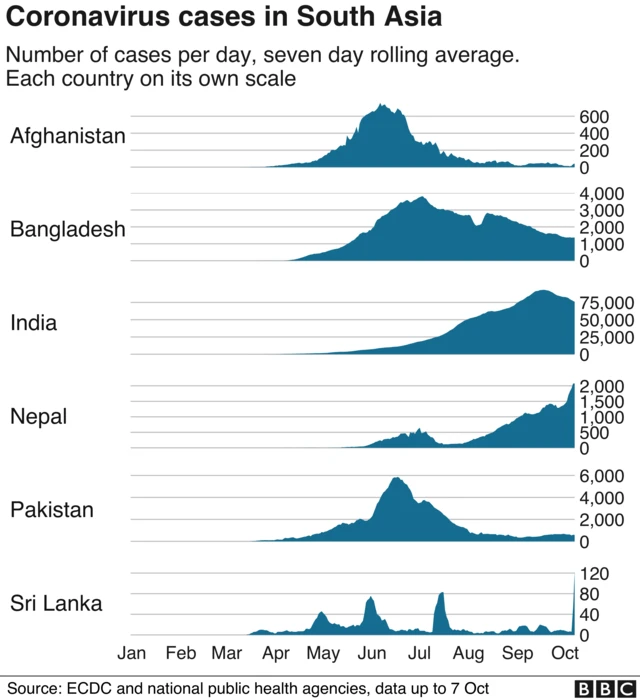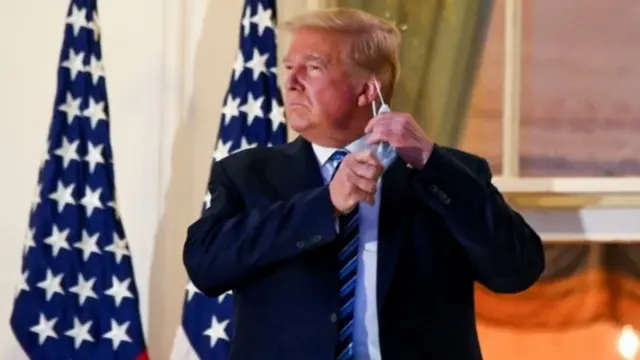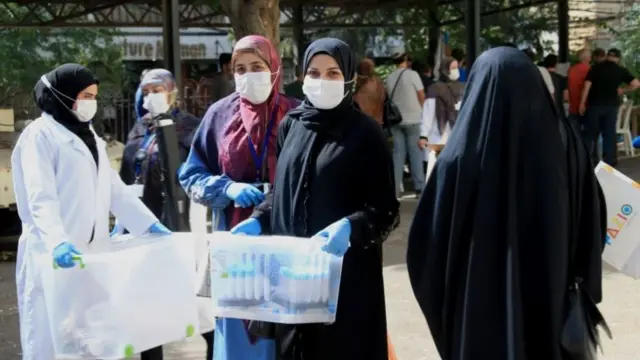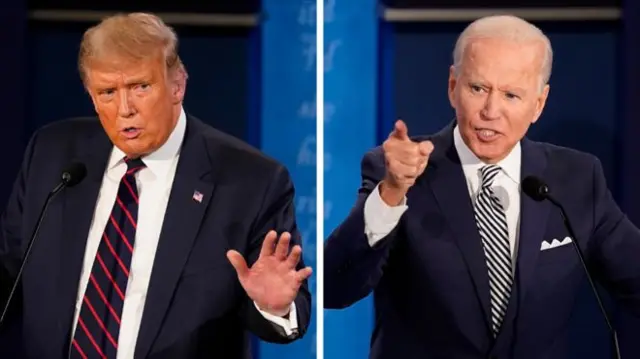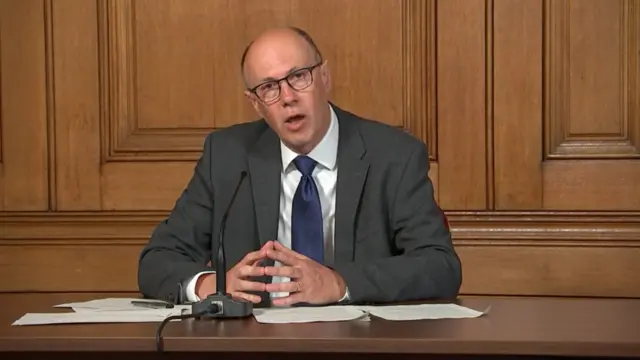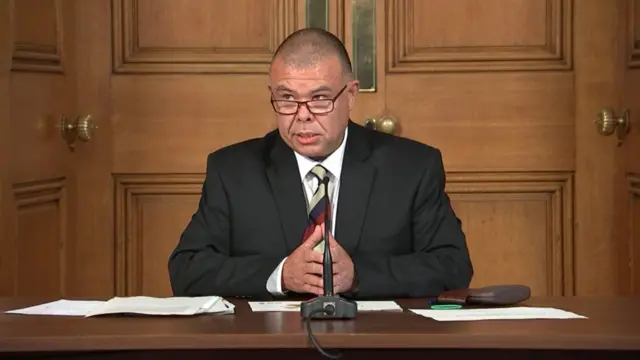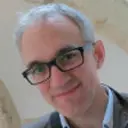Pope's Swiss Guards test positivepublished at 13:34 BST 12 October 2020
Four Swiss Guards - the papal protection force - have coronavirus symptoms and been placed in isolation, the Holy See's press office has announced.
There have been three other cases in recent weeks, said the director of the office Matteo Bruni. The Holy See has had 12 confirmed cases and no deaths, according to a world-wide tally kept by the Johns Hopkins University in the US.
The 110 member Swiss Guard are responsible for the personal security of the Pope. They have served the papacy for five centuries, first coming to Rome to protect Pope Julius II in 1506. Members of the Guard must be Swiss, Catholic, single and under the age of 30. They are also required to complete basic training with the Swiss army.
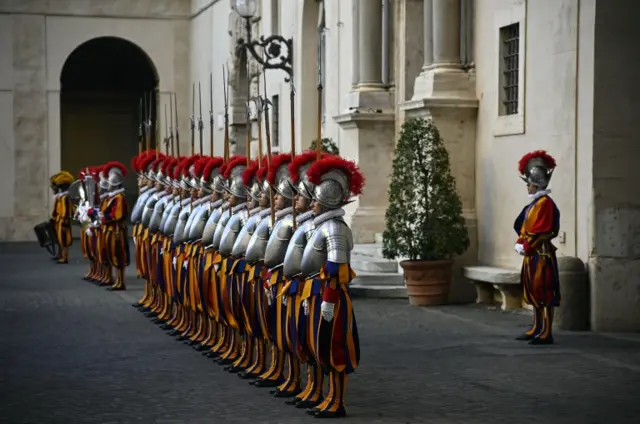 Image source, EPA
Image source, EPA
